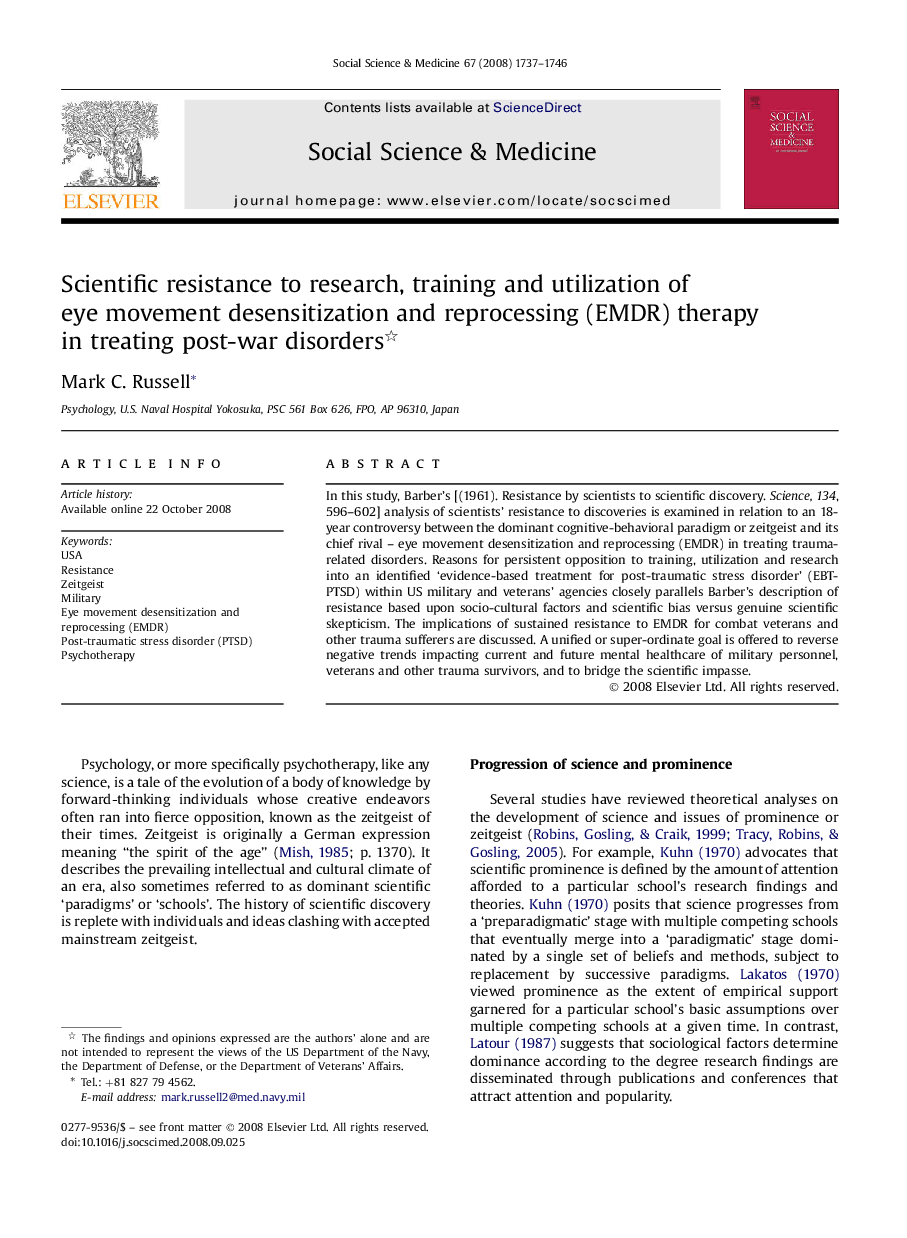| Article ID | Journal | Published Year | Pages | File Type |
|---|---|---|---|---|
| 953506 | Social Science & Medicine | 2008 | 10 Pages |
In this study, Barber's [(1961). Resistance by scientists to scientific discovery. Science, 134, 596–602] analysis of scientists' resistance to discoveries is examined in relation to an 18-year controversy between the dominant cognitive-behavioral paradigm or zeitgeist and its chief rival – eye movement desensitization and reprocessing (EMDR) in treating trauma-related disorders. Reasons for persistent opposition to training, utilization and research into an identified ‘evidence-based treatment for post-traumatic stress disorder’ (EBT-PTSD) within US military and veterans' agencies closely parallels Barber's description of resistance based upon socio-cultural factors and scientific bias versus genuine scientific skepticism. The implications of sustained resistance to EMDR for combat veterans and other trauma sufferers are discussed. A unified or super-ordinate goal is offered to reverse negative trends impacting current and future mental healthcare of military personnel, veterans and other trauma survivors, and to bridge the scientific impasse.
